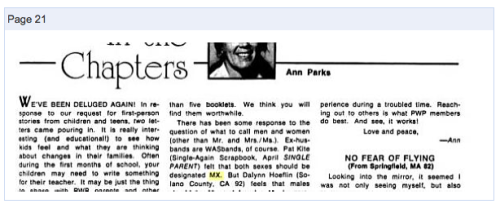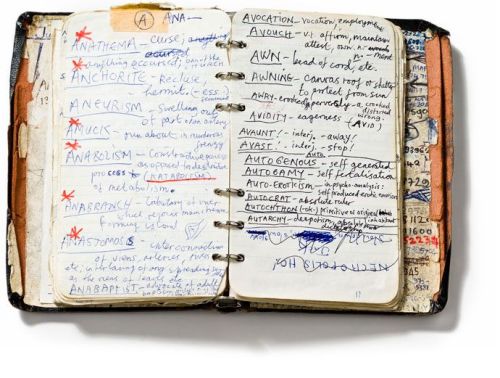#dictionary
A New Icelandic Dictionary.
Komið sæl og blessuð, vinir mínir!
After waiting several months, I finally got myself this dictionary. I haven’t had the chance to use it much yet (just got it last night), but it looks great! This, in combination with ‘textbooks’ and Madison-Wisconsin’s online dictionary, should prove to be very useful!
Bless bless!
– Fjörn
Post link
A video by Arika Okrent pointing out that one generation’s despised jargon is another generation’s unremarkable vocabulary. Old-timey peevers look ridiculous! (Psst, so do modern-day ones.)
Try not to twitch!
@people who write (s)he or s/he:
i hope you’re sitting down because i have something amazing to tell you… there is a word… “they”… that you could use when you don’t know a person’s gender/pronouns… yeah… amazing i know
“ #Except grammar #I’m salty about this #Because #singular v. plural #grammar”
i’m really fucking tired of seeing shitty tags like this on my post lmao
i use ‘they’ pronouns. singular. because i am not multiple people. many other trans/nb people like myself also use singular they as their pronouns. that alone should be enough for you all to stop whining about how “they are plural!!!!” and accept it as a singular pronoun as well.
but if you absolutely need some other sources for “they” being grammatically correct as a singular pronoun, knock yourself out:
Thefirst recorded use of the gender-inclusive title Mx in print, from The Single Parent magazine, volume 20, April 1977.
The letters page ‘In The Chapters’ by Ann Parks, page 21, gives some context - it appears that a previous issue had asked a question to which Mx was one of the suggested answers:
There has been some response to the question of what to call men and women (other than Mr. and Mrs./Ms.). Ex–husbands are WASbands, of course. Pat Kite (Single-Again Scrapbook, April SINGLE PARENT) felt that both sexes should be designated MX. But Dalynn Hoeflin (Solano County, CA 92) feels that males should be
But the actual first use in print is on Page 16 in an article called ‘Single-Again Scrapbook’ by Pat Kite. This appears to be a short story, possibly part of a serial, involving a flirtatious encounter at a party:
“THE WORST PROBLEM facing the single woman today is having to decide whether she is Miss., Mrs., or Ms.,” said the Blue-Eyed Man as he sat sipping his rosé.
“Ooohh, really?” I gasped, swallowing my frito whole.
“I’m glad you agree,” nodded the Man, taking the matches from my hand to light my cigarette. “Now, where I work we make it a point to call every female ‘Ms.’ It took me quite a while, but I made it. Now everybody’s happy.”
“Where do you work?” I asked.
“The welfare bureau.”
“Do you mean if you get a widow who was married forty-eight years in your office, and you address her as Ms., she likesit?”
“Why not?” said the Man.
“Frankly the term Mizzzz reminds me of the servant section of a pre Civil War Southern plantation,” I commented, drawing out the words through clenched teeth.
“Oh, that was in the past” smiled the happy Man. “Now Ms. for everyone connotes individuality. What tile do you go by?”
“Mrs.” I replied with a shrug.
“Why Mrs.?”
“Because I have four children and I like them to look legitimate, that’s why. Anyhow, if Mrs. and Miss are to be shortened to Ms., then I think Mister and Master should be changed to Muster … abbreviated Mu. On second thought, maybe both sexes should be called Mx. That would solve the gender problem entirely.”
“Are you a women’s libber or something?” said the horrified Man. "Then how come you didn’t get mad when I lit your cigarette?“
“Because it was a gesture of courtesy,” I answered, “and I don’t think good manners ever go out of style. Besides, I love having doors opened for me, and my heavy packages carried.”
“Oh, then you’re not a libber!” said the Man with a sigh of relief.
“It all depends on how you look at it,” I replied. "For instance, if you’ll give me my matches back, I’ll be able to light your cigarettes. We could take turns.“
"You wouldn’t. . . .!”
“Why not?” I said with a tiny smirk.
“You know, the biggest problem women have today is whether to be Miss, Mrs., or Ms.,” said the Man, as he took the matches from his pocket and lit my Bel-air.
“Not quite, kind Sir,” I commented, trying to change the topic to the artistic merits of Alice Cooper.
"Yes really, Ma'am,“ laughed the Man as he got up to dance.
And we mixed our whimsey with our wine until well past midnight.”
There are also a number of examples of people discussing Mx on Usenet newsgroups starting from 1982, with the first person mentioning that they have used the title for themself appearing in 1998.
Mx is currently being considered for inclusion in the next edition of the Oxford English Dictionary.
(Thanks to Alex from Nonbinary Inclusion Project and several Twitter users, including Altivo, who helped a great deal in tracking down this article.)
Post link
Perry Como is the top choice of who 20-year old women would like to marry
(Yale Joel. 1956?)
Post link
i just found out merriam webster has a time traveler feature that tells you some of the words that were “born” the same year as you. it’s pretty neat yall should do this
Noun
[ ih-fyoo-zhuhn ]
1. the act of effusing or pouring forth.
2. something that is effused.
3. an unrestrained expression, as of feelings:poetic effusions.
4.Pathology.
a. the escape of a fluid from its natural vessels into a body cavity.
b. the fluid that escapes.
5.Physics. the flow of a gas through a small orifice at such density that the mean distance between the molecules is large compared with the diameter of the orifice.
Origin:
1350–1400; Middle English (<Anglo-French ) <Latin effūsiōn- (stem of effūsiō), equivalent to ef-ef-+fūsion-fusion
“There is an intensity and effusion of spirit in them, in which his own more studied compositions are somewhat wanting.”
- CHARLES J. ABBEY AND JOHN H. OVERTON, THE ENGLISH CHURCH IN THE EIGHTEENTH CENTURY
Adjective
[plan-juhnt ]
1. resounding loudly, especially with a plaintive sound, as a bell.
Origin:
1815–25; <Latin plangent- (stem of plangēns), present participle of plangere to beat, lament. See plain2,-ent
“It seemed as large as the shell of a cathedral, and for organ there was the plangent, echoing sound of sea waves.”
- CYRIL ARTHUR EDWARD RANGER GULL, THE AIR PIRATE
Verb (used with object)
[ flout ]
1. to treat with disdain, scorn, or contempt; scoff at; mock:to flout the rules of propriety.
Verb (used without object)
2. to show disdain, scorn, or contempt; scoff, mock, or gibe (often followed by at).
Noun
3. a disdainful, scornful, or contemptuous remark or act; insult;gibe.
Origin:
First recorded in 1350–1400; Middle English flouten “to play the flute” (see flute); compare Dutch fluiten “to play the flute, talk smoothly, soothe, blandish, impose upon, jeer”
“Is it a safe thing, think you, Sir Count, to jest with a princess in her own land and then come back to flout her for it?”
- S(AMUEL) R(UTHERFORD) CROCKETT, JOAN OF THE SWORD HAND
Adjective
[dawnt-lis,dahnt- ]
1. not to be daunted or intimidated; fearless; intrepid; bold:
a dauntless hero.
Noun
2. (initial capital letter) Also called Douglas SBD. the principal U.S. Navy fleet bomber of early World War II, capable of carrying bombs or depth charges and particularly successful as a dive bomber.
Origin:
First recorded in 1585–95; daunt+-less
“But in spite of those rather weary looking eyes, young Mortier was possessed of a burning enthusiasm and a dauntless courage.”
- R. P. DUNN-PATTISON, NAPOLEON’S MARSHALS
Noun
[ pir-oo-et]
1. a whirling about on one foot or on the points of the toes, as in ballet dancing.
2.Dressage. a complete turn in which the horse uses its hind legs as a pivot.
Verb (used without object),pir·ou·et·ted, pir·ou·et·ting.
to perform a pirouette; whirl, as on the toes.
Origin:
1700–10; <French: a whirl, top, feminine of Middle French pirouet, equivalent to pirou-(cognate with Italian pirolo, diminutive of piropeg) + -et-et
“Jessie suddenly hopped down from the chair arm and began a pirouette about the room, clapping her hands as she danced.”
- MARGARET PENROSE, THE CAMPFIRE GIRLS OF ROSELAWN
Adjective
[vi-tree-uhs ]
1. of the nature of or resembling glass, as in transparency, brittleness, hardness, glossiness, etc.:
vitreous china.
2. of or relating to glass.
3. obtained from or containing glass.
Origin:
1640–50; <Latin vitreus, equivalent to vitr(um)glass + -eus-eous
“This he dropped into some molten lead, but it was nearly all exhaled in smoke, and the residue was simply of a vitreous character.”
- WILLIAM HENRY DAVENPORT ADAMS, WITCH, WARLOCK, AND MAGICIAN
Noun
[meyl-struhm ]
1. a large, powerful, or violent whirlpool.
2. a restless, disordered, or tumultuous state of affairs:
the maelstrom of early morning traffic.
3.(initial capital letter) a famous hazardous whirlpool off the NW coast of Norway.
Origin:
Maelstrom comes from an early Dutch proper noun that is a combination of the verb malen (“to grind”) and the noun stroom (“stream”). The original Maelstrom, now known as the Moskstraumen, is a channel located off the northwest coast of Norway that has dangerous tidal currents and has been popularized among English speakers by writers such as Edgar Allan Poe and Jules Verne (whose writing was widely translated from French) in stories exaggerating the Maelstrom’s tempestuousness and transforming it into a whirling vortex. Maelstrom entered English in the 16th century and was soon applied more generally in reference to any powerful whirlpool. By the mid-19th century, it was being applied figuratively to things or situations resembling such maelstroms in turbulence or confusion.
“There is that might-have-been which is the single rock we cling to above the maelstrom of unbearable reality.”
- William Faulkner
Noun
[ shey-ree]French.
1. dear; sweetheart: used in referring to or addressing a woman or girl.
Origin:
Borrowed from Anglo-Norman cheri, from Old Northern French cherise (“cherry”), from Vulgar Latin ceresia, a reinterpretation of the neuter plural of Late Latin ceresium, from Latin cerasium(cerasum,cerasus (“cherry tree”)), from Ancient Greek κεράσιον (kerásion, “cherry fruit”), from κερασός (kerasós, “bird cherry”), and ultimately possibly derived from a language of Asia Minor. Displaced Old English ciris (also from Vulgar Latin ceresia), which died out after the Norman invasion and was replaced by the French-derived word.
“"I tell you it is like taking the life of a puppy, ma cherie,“ he was saying.”
- JAMES OLIVER CURWOOD, THE COURAGE OF MARGE O'DOONE
Adjective
[urst-hwahyl, -wahyl ]
1. former; of times past:
erstwhile friends.
Adverb
2. Archaic. formerly; erst.
Origin:
The adverb erstwhile has been part of English since the 16th century, but it is formed from two words that are much older. It comes from the Old English words ær, meaning “early,” and hwīl, which has much the same meaning as the modern word while. (The English word ere, meaning “before,” is also descendant of ær.) The adjective erstwhile, as in erstwhile enemies, joined the language around 1900.
“After all, my erstwhile dear, my no longer cherished, need we say it was no love, just because it perished?“
- Edna St. Vincent Millay
Noun
[ weyf ]
1. a person, especially a child, who has no home or friends.
2. something found, especially a stray animal, whose owner is not known.
3. a very thin, often small person, usually a young woman.
4. a stray item or article:to gather waifs of gossip.
5. Nautical. waft (def. 8).
Origin:
First recorded in 1350–1400; Middle English, from Anglo-French, originally “lost, stray (animal), unclaimed (property)” (compare Old French guaif “stray beast”), from Scandinavian; compare Old Norse veif “movement to and fro, something waving, flag”; see waive
“Ann is an opera singer, fragile and captivating onstage, somewhere between waif and warrior.”
- ANNETTE IS GORGEOUS TO LOOK AT BUT ALL THE WRONG KINDS OF WEIRD|STEPHANIE ZACHAREK|AUGUST 6, 2021|TIME



















